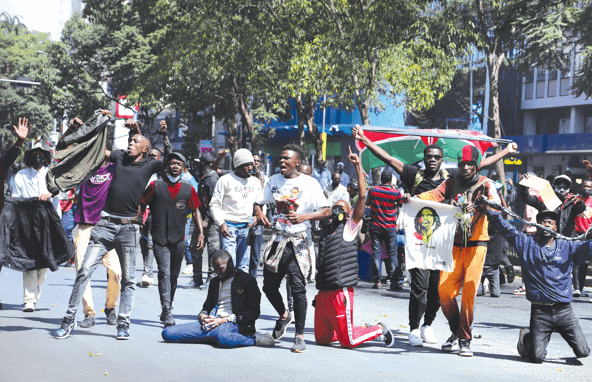Internet shutdown fears persist amid protests

Stakeholders in the telecom sector wary of African governments’ proclivity for internet shutdowns during periods of civil unrest, dread the potential loss of billions of shillings in Kenya in light of the ongoing civic protests.
They said any form of internet blackout would have detrimental financial impact on the burgeoning e-commerce market in Kenya, which is projected to reach $801.4 million (Sh103 billion) by the end of 2024.
The stakeholders which raised the alarm included Kenya ICT Action Network (KICTANet), the Collaboration on International ICT Policy in East and Southern Africa (CIPESA), Paradign Initiative and Internet Society Kenya Chapter. The Internet Society’s Pulse NetLoss calculator underscores the gravity of the situation, estimating a substantial daily loss of $6.3 million (Sh810 million) to the Kenyan economy should an internet outage occur.
The stakeholders urged the authorities to refrain from imposing internet shutdowns, arguing that such actions would violate the fundamental rights of Kenyans and could tarnish Kenya’s international reputation.
Fundamental rights
“Such measures would infringe on the fundamental rights and freedoms of Kenyans, as well as negatively impact Kenya’s economy, democracy, and reputation in the eyes of the international community,” they noted.
However, in a reassuring move, Communications Authority of Kenya (CA) has stated there are no plans for an internet shutdown, aiming to quell fears and ensure the continuity of online services and economic stability in the nation.
“The Communication Authority of Kenya has received inquiries regarding an imminent Internet shutdown on Tuesday, 25th June 2024. For the avoidance of doubt, the Authority has no intention whatsoever to shut down internet traffic or interfere with the quality of connectivity,” CA Director General David Mugonyi said on Monday. “It is a pattern for African governments. Whenever there is civil agitation, they say they will shut down the internet,” KICTANet CEO Grace Githaiga told the Business Hub.
She said unlike previous demonstrations marked by physical confrontations, the ongoing protests rely on digital communication as their driving force, where demonstrators wield digital devices to amplify their voices, disseminate content, and raise awareness. She urged authorities to recognise this shift, and embrace its own digital ambitions, declaring itself a true digital government. “It is time for the government to align with its own digital aspirations, and declare itself a true digital government,” Githaiga said.
The stakeholders worry that internet disruptions in would impact daily transactions, disrupt the mobile money industry including M-Pesa which handles over six billion transactions annually valued at over Sh6.4 trillion, hinder digital startups, which in 2022 attracted Sh141.3 billion in funding and erode investor confidence.
Beyond short-term effects, they reckon that these internet disruptions carry reputational risks, disrupt supply chains, and discourage foreign direct investments.
Additionally, the tourism sector, heavily reliant on internet connectivity, would suffer, and emergency services could be hindered during the crises.
Using digital activism
The Finance Bill2024 has already encountered strong opposition, and in particular, using digital activism. This has prompted the Kenya government to withdraw several contentious clauses.
“This illustrates the value of having open lines of communication between the public and the government and the influence that public discourse may have,” they said, while urge the government to respect democratic values, have an honest conversation with demonstrators, and answer their concerns transparently.









